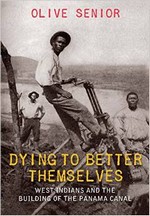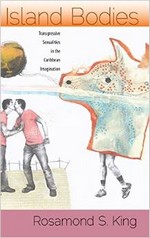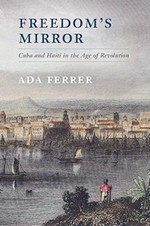2015 Gordon K. and Sybil Lewis Award
The Caribbean Studies Association (CSA) is pleased to announce the 2015 Gordon K. and Sybil Lewis Award, which carries with it a monetary prize of $1000, thanks to the generous Lewis Family donation and its continuing support of the CSA. The Award commemorates not one but these two distinguished Caribbeanists. One of the most important contributions of Gordon Lewis in particular was the ways in which his work was his trans-caribbean. Gordon Lewis was a most admirable intellect who understood the Caribbean as a space that was beyond just a racial and linguistic space.
This year we received 28 manuscripts—this suggests to me that Caribbean Studies is in good shape. Our scholars continue to produce new work. The reviews and recommendations made were based on some definite criteria. We look at the importance of the theoretical contribution to our understanding of historical and/or contemporary issues within a discipline of the broader field of Caribbean Studies. We gave attention to the rigueur of the publication, like the use of primary source data, the use of new methodology, the development of new paradigm.
I would like to thank the review team (judges: Drs Lisa Outar, Rita). It is with great pleasure, therefore, that we announce that instead of one winner, this year we are delighted to have two authors share the prize for the 2015 Gordon K. & Sybil Lewis Award. We also had one book that we felt deserves honorable mention.
The two winners are: |
|

|

|
| Olive Senior Dying to Better Themselves: West Indians and The Building of the Panama Canal Mona, Jamaica: UWI Press 2014 |
Rosamond S. King Island Bodies: Transgressive Sexualities in the Caribbean Imagination University Press of Florida |
Honorable Mention: |
|
 |
|
| Ada Ferrer Freedom’s Mirror: Cuba and Haiti in the Age of Revolution Cambridge University Press |
|
Comments:
Rosamond S. King: Island Bodies: Transgressive Sexualities in the Caribbean Imagination– University Press of Florida
Island Bodies aims for and goes a far way to achieving true inclusion in Caribbean scholarship, examining as it does Indo-Caribbean production, representations and experiences of Caribbean heterosexual men, hetero women, and LGBT perspectives. In her focus on sexuality, King does not limit herself to considering homosexuality or heterosexuality but on transgressive choices – “unconventional genders, homosexuality, women’s sexual agency, and interracial relationships” – making “an argument for common attitudes towards sexuality throughout the region.” In this interdisciplinary and comparitivist project.
Olive Senior, Dying to Better Themselves: West Indians and The Building of the Panama Canal. Mona, Jamaica: UWI Press 2014
Dying to Better Themselves: West Indians and the Building of the Panama Canal, Mona: UWI Press 2014, is a work of tremendous significance with very deep contemporary resonances of historical, sociological, economic, financial, cultural, symbolic and material import. The lack of any explicit theoretical and philosophical emphasis is largely compensated for by the textual richness and the broad scope and depth of analysis. Dying to Better Themselves: West Indians and the Building of the Panama Canal is a study that contributes immensely to our knowledge of the Caribbean in the broader regional and global context in exceptionally original and enduring ways. Senior breaks new ground demonstrating that barriers are constructed and that it is far more beneficial to approach topics like the construction of the Panama Canal in a spatial context. The work is extremely rich with dozens of photographs, drawings, charts, and tables that complement the other archival material and the significant number of secondary sources.
